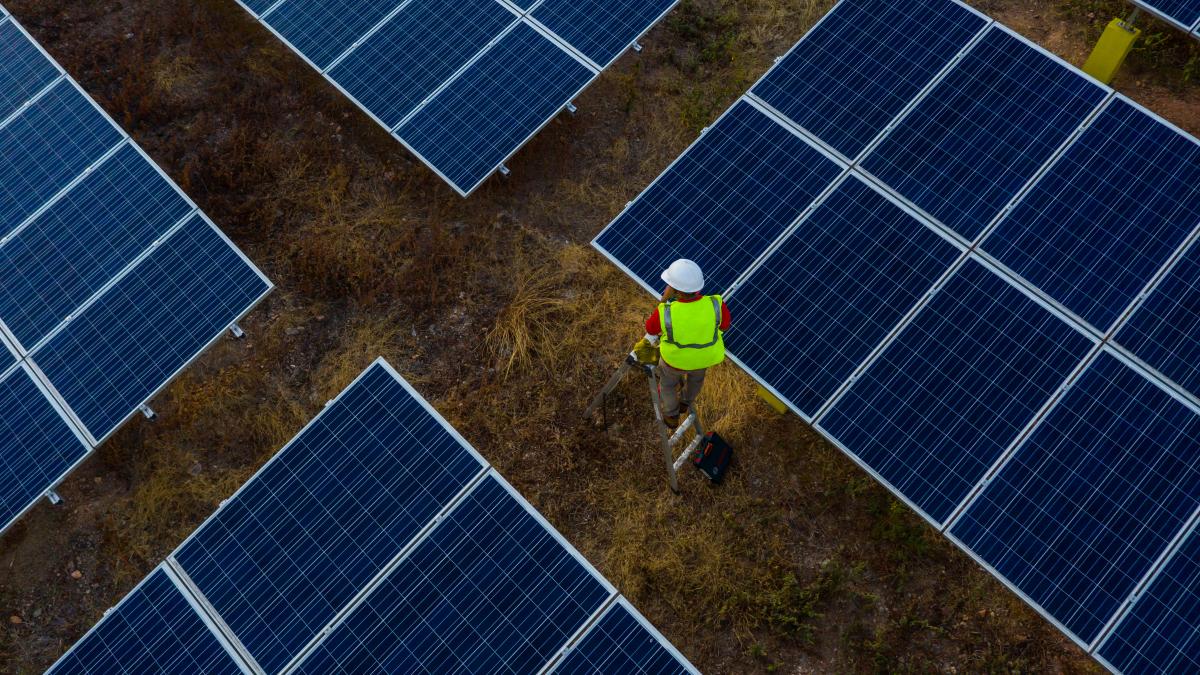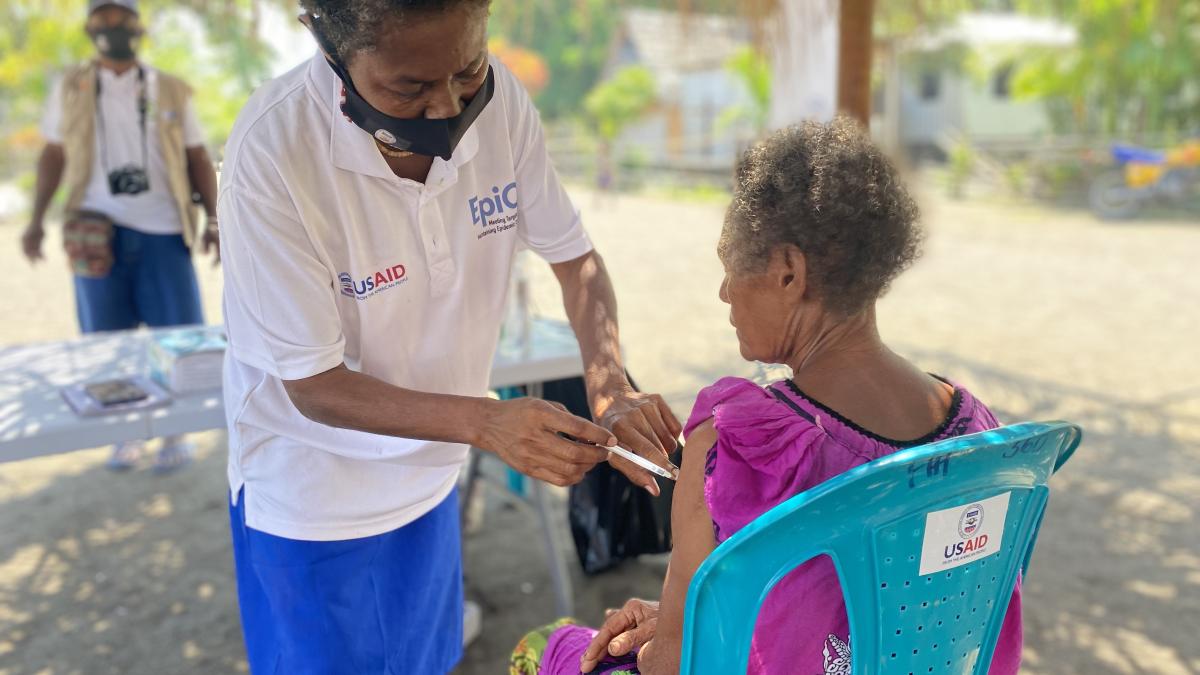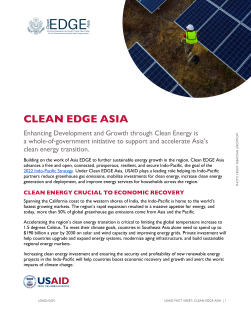The Indo-Pacific countries are on the frontlines of the climate crisis and the constant threat of a new pandemic. Our partners are essential in uncovering and implementing solutions for greater resilience against current and future shocks. Investing in the region’s health and natural resources management helps communities and economies thrive while keeping Americans safe from infectious diseases and mitigating impacts from climate change.
Climate Response:

Increasing Growth and Stability through Clean Energy (Clean EDGE Asia): Through our contributions to the Clean EDGE Asia Initiative.
Safeguarding Natural Resources for Climate Security in Asia: To address climate change in partnership with communities, governments, and regional institutions, USAID investments across the Indo-Pacific safeguard natural resources as fundamental for adaptation and resilience. These efforts conserve key land and seascapes—the world’s most important carbon sequestration powerhouses. USAID works to transform the Indo-Pacific towards low-emissions and climate-resilient systems and economies through: (1) promoting the adoption and enforcement of laws, policies, regulatory frameworks, and standards; (2) advancing conservation and sustainable practices, businesses, trade and investment; and (3) reducing transnational criminal activity related to marine life, wildlife, and the environment.
Health Response:

Strengthening Health Systems: Across the Indo-Pacific, USAID strengthens the ability of countries, and the region overall, to prevent, detect, and respond to public health infectious disease threats. USAID will seek to build and increase partnerships and approaches to advance investment, equity, and progress in the health sector. USAID programs will help countries maintain recent improvements in their health systems, such as more effective vaccination storage, distribution networks, and supply chains, so that more countries can achieve universal health coverage. This will ensure health systems across the Indo-Pacific remain vigilant against COVID-19 mutations and stop future infectious disease threats.

